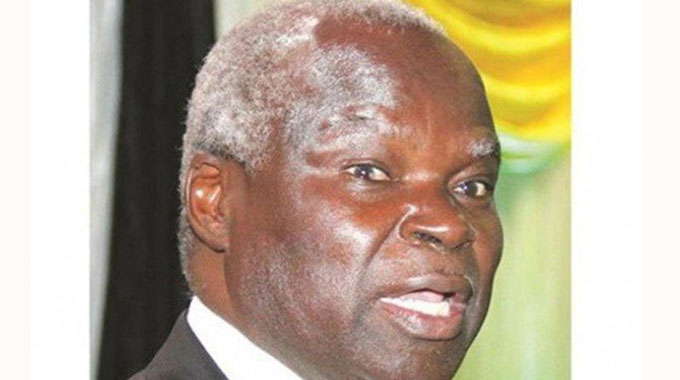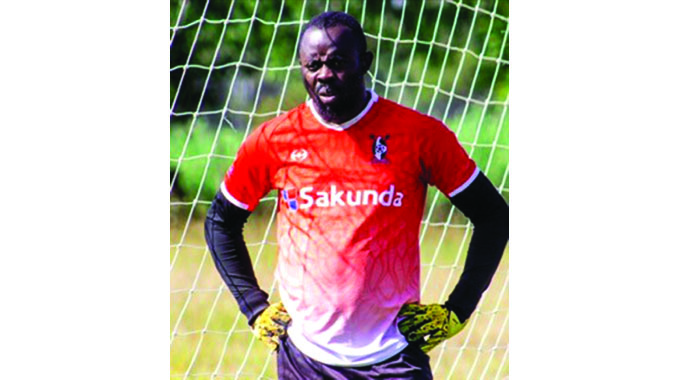AFRICA UNITED RULE

Robson Sharuko Senior Sports Editor
FROM Angola to Cameroon, from Guinea to Algeria and from the Democratic Republic of Congo to Mali, Africa left its glorious footprints at the 2018 FIFA World Cup in Russia at a global football show where the continent’s representative nations had their worst showing in 36 years.
Two weeks after Senegal’s elimination because of their poor Fair Play record ensured there would be no African nation in the knock-out stages of the World Cup, for the first time since 1982, the continent provided the defining influence in the grand finale in Moscow on Sunday.
Egypt lost all their three group games in Russia, to finish bottom of their group, Morocco also finished bottom of the group after losing two and drawing one game while Nigeria, Tunisia and Senegal all finished second from the bottom of the table.
While the Russian adventure will be remembered for the collective failure of the African representative nations — despite the continent parading some of the best talents in the game today, including Sadio Mane of Senegal and Mohammed Salah of Egypt — the final in Moscow on Sunday delivered a triumph whose roots had a significant African flavour.
Eight of France’s starting XI in the World Cup final on Sunday had immigrant roots and five of those players have African descendants who arrived in the country as immigrants — Mbappe, Pogba, Samuel Umtiti, N’Golo Kante and Blaise Matuidi.
A sixth, Raphael Verane, has roots in the French Caribbean.
For the first time in the history of the FIFA World Cup final, two players with African heritage — whose arrival in the countries they now represent had nothing to do with slavery — scored with Paul Pogba and Kylian Mbappe on target for the French in their 4-2 win over Croatia.
The legendary Pele and Jarzinho might have scored for Brazil in the FIFA World Cup final against Italy in Mexico City in 1970 but the duo’s pilgrimage to eventually end up as Brazilians, from their roots in Africa, was linked to the brutal era of the slave trade.
In sharp contrast, teenage forward Mbappe, who was named the Best Young Player at this year’s World Cup, and midfielder Pogba’s transformation into French stars had to do with the movement of their parents from Africa to settle in France as immigrants.
‘’If Kylian keeps equalling my records like this I may have to dust my boots off again,’’ Pele tweeted after the young Frenchman became the second youngest player to score in the World Cup final.
Marshall Gore, the ZIFA representative in the United Kingdom, has been working tirelessly to try and bring footballers — who were born in that country but have Zimbabwean roots — to come and represent this country in international football.
He believes the French and Belgian success stories in Russia should provide this country with a template to value the integration of immigrant stars.
‘’We have a number of very good players who were born in this country but have that Zimbabwean connection and we have been trying to bring them to play for the Warriors but the pace of their processing of documents has been very slow and a bit frustrating,’’ he said.
‘’If we are not careful, we will lose this talent because these guys will also get frustrated because they can’t understand why this is taking too long.
‘’They can add value to our team in a big way and we should understand that the game is changing and we have to move with the changes.’’
Mbappe was born in France to a Cameroonian father, Wilfried, and an Algerian mother, Fayza Lamari, and was taught, from a young age of six, by his dad — who is also a coach and agent — how to develop his skills in the beautiful game.
His other youth coach, Antonio Riccardi, who was also in charge of his development from his years as a six-year-old, remembers a footballer who was different and special.
‘’The first time I coached him was when he was six-years-old. You could tell he was different. Kylian could do much more than the other children,’’ he said.
‘’His dribbling was already fantastic and he was much faster than the others. He was the best player I’ve ever seen in 15 years coaching here. In Paris there are many talents, but I’d never seen a talent like him. He was what we call a ‘craque’ (the best).’’
Pogba, just like Mbappe, was born in France but his parents came from Guinea and his two brothers — Florentino and Mathias — actually play for the West African nation’s senior national football team.
Florentino, who is a defender at Turkish side Genclerbirligi in the country’s Super Lig and was born in the Guinea capital Conakry before moving to settle in France with his parents when he was eight-months-old, has been capped 21 times by the West African nation.
His twin brother Mathias plays as a forward for Dutch side Sparta Rotterdam and has been capped five times by the Guinea national team.
Barcelona defender Umtiti, who scored the decisive goal that knocked out Belgium in the semi-finals, was born in Yaounde, Cameroon, and was only two when his family moved to settle in Villeurbanne, outside Lyon, in France.
Matuidi was born in Toulouse, France, to an Angolan father, Faria Rivelino, and a Congolese mother, Elise, while Kante was born in France to Malian immigrants.
All the three substitutes which the French used in the final on Sunday had African roots with Stephen Nzonzi having Congolese connections, Corentin Tolisso being of Togolese descent and Nabil Fekir, the attacking midfielder, being born to parents of Algerian origin.
Fekir was even called into the Algerian side for the international friendlies against Oman and Qatar in March 2015 but withdrew from the squad and, instead, chose to join the French team for the friendlies against Brazil and Denmark around the same time.
Now, he is a World Cup winner.








Comments